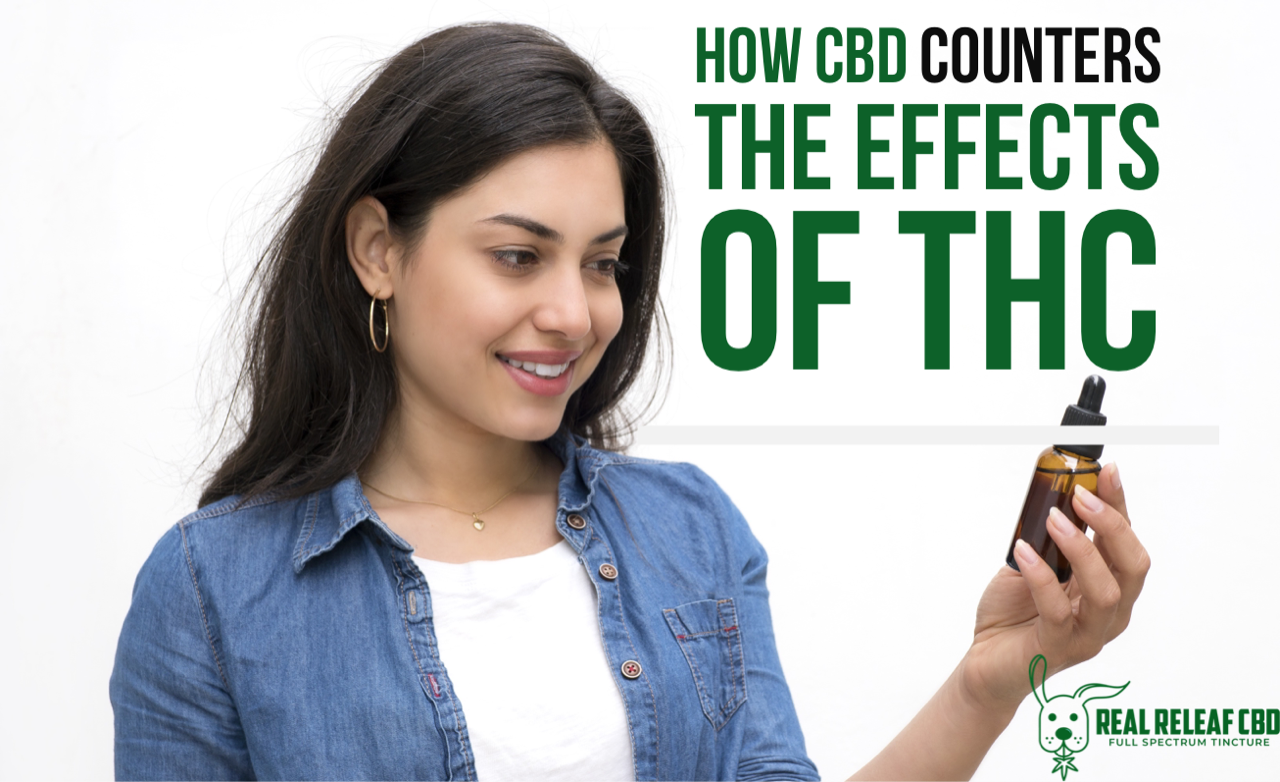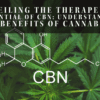
Cannabis legalization gives medical and recreational users access to cannabinoids like THC and CBD, and scientists less challenge studying the plant’s compounds. In addition, grant money, patients, and eventually data give researchers a better understanding of the specific mechanisms occurring after cannabis consumption. Access to more information is reshaping our knowledge of how cannabis affects our bodies and the relationship between THC and CBD.
Further research has led us to alter our understanding of the specific interaction at the CB1 receptor after CBD is taken. Now scientists believe CBD binds (with low affinity) and alters the receptor, acting as an agonist. Thus, THC results can be inhibited when the cannabinoids are taken together, but cannabis compounds and our brains are incredibly complicated and require a deeper understanding of the endocannabinoid system.
How CBD Affects Our Endocannabinoid System (ECS)?
CBD affects the ECS much differently than THC. Benefits are created by increasing the production of neurotransmitters produced by enzymes that activate the receptors responsible for THC high. CBD acts indirectly by increasing production and altering the structure of the cannabinoid (CB) receptors.
The ECS consists of three main parts:
- Endocannabinoids
- Cannabinoid (CB) receptors
- Degrading Enzymes
Endocannabinoids and Enzymes
Endocannabinoids are cannabis-like molecules produced naturally by the enzymes in the ECS. THC gets users high because the compound is structured similarly to one of the two endocannabinoids we are aware of, anandamide.
Also referred to as the bliss molecule, anandamide levels are increased in some cases after taking CBD through degrading inhibiting enzymes.
Cannabinoid Receptors
Endocannabinoids like anandamide and cannabinoids like THC directly activates CB1; the receptor then floods the brain with serotonin creating the notorious high.
The reason why CBD lowers the effects of THC is because of its ability to change CB1. Lab Roots, ‘the leading scientific social networking website and producer of educational virtual events and webinars,’ describes the mechanism that CBD inhibits the effects of THC. ‘CBD functions as a negative allosteric modulator, which means that CBD binds to a site on the CB1 receptor distinct from the THC binding site. This attachment causes the receptor site where THC binds to change the receptor’s structure, which creates a lesser binding of THC and less activation of the CB1 receptor.’
Can CBD Reduce the Effects of THC?
Yes, but the process is more complex than CBD sobering up medical marijuana users who are too high. The effects are reduced but still significant.
The Interaction is Complicated
Taking CBD doesn’t block THC from activating CB1, but it does lower the efficacy. The process can be compared to how Delta 8 produces a milder high. Lab Roots confirms the complicated procedure by stating, ‘the results can be inconsistent. In some cases, CBD reduced the effects of THC, and in other cases, it exacerbated the effects of THC. The reason for this is because of multiple mechanisms in which CBD interacts with THC. ‘
3 Mechanisms that CBD interacts with THC
CBD affects THC in 3 ways:
- Pharmacokinetic – CBD modulates the effects of THC by inhibiting the CYP2C9 enzyme, the protein responsible for metabolizing THC. As a result, THC blood levels are increased. ‘It has also been seen that by administering CBD before THC, increased THC levels were measured in the blood and brain of rats and mice.
- Direct Pharmacodynamics – This is the scientific term that describes CBD’s effect on THC by binding with the same receptor, ‘acting as a negative allosteric modulator and reducing activation on the CB1 receptor.’
- Binding with Other Receptors – CBD is believed to reduce anxiety by ‘acting at the 5-HT1A receptor.
Due to the multiple ways CBD can affect the intoxicating properties of THC, the process is anything but simple. The complexities of our bodies and how cannabinoids are processed make the size of the CBD dose, the CBD:THC ratio, and the proximity in time of dosage significantly influential in reducing the psychoactive effects of THC.
Other Compounds that Decrease THC Toxicity
One of the most famous pieces of scientific meta-analysis, is Dr. Ethan Russo’s Taming THC: Potential cannabis synergy and phytocannabinoid-terpenoid entourage effects. The renowned cannabis researcher praises CBD by stating, ‘It has proven extremely versatile pharmacologically, displaying the unusual ability to antagonize CB1 at a low nM level in the presence of THC, despite having little binding affinity, and supporting its modulatory effect on THC-associated adverse events such as anxiety, tachycardia, hunger and sedation in rats and humans.’
Russo also outlines some natural antidotes to THC intoxication in Taming THC. According to Russo’s research, lemon, calamus plant roots, pine nuts, and black pepper have been used throughout history to regulate the psychoactive effects of THC. He explains that ‘calamus contains beta-asarone, an acetylcholinesterase inhibitor with 10% of the potency of physotigmine’ creating ‘clearer thinking and improved memory with the cannabis–calamus combination.’
Counteracting THC
Incredibly, we’ve moved past demonizing cannabis and are beginning to truly understand its compounds pharmacologically. However, while we know how CBD can reduce the effects of THC, carrying out the relationship in the real world is complex, and there isn’t an exact plan of attack outlined by experts.
Experimenting with different ratios is an efficient way to monitor the effects of cannabis. High CBD low THC strains and concentrates are available at medical marijuana dispensaries; they are the most stable option. Taking CBD before or after using THC has varied effects, according to the research by Lab Roots.
Most cannabis users experiencing adverse effects are suffering from self-induced anxiety after taking high amounts of THC, and an intensified sense of paranoia and anxiety can occur. A better approach to reducing these effects is drinking water, taking deep breaths, and reassuring oneself that no one has ever died from THC intoxication. CBD does reduce receptor activation, but paranoia and anxiety may still need to be overcome psychologically.
Hopefully, as we learn more about CBD, THC, and other cannabinoids, we will gain insights into using ratios optimized for specific medical applications and pleasant recreational experiences.




